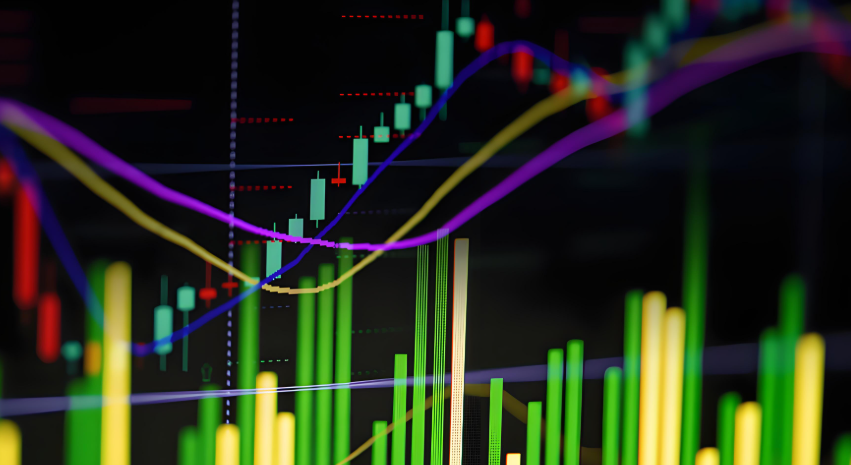European Stocks Open Down
Advertisements
The European stock market recently opened lower, signaling a broad sentiment of caution among investors. The Euro Stoxx 50 index fell by 0.4% at the outset, while the German DAX declined by 0.2%. The UK’s FTSE 100 and France's CAC 40 also recorded slight drops of 0.1%. This notable trend of reduced investor confidence at market open showcases the prevailing uncertainties in the economic landscape. Observers might wonder what has led to this negative sentiment and whether it could reveal potential investment opportunities in the midst of turmoil.
One significant factor contributing to this slow start can be found in the recent economic data, which has not been promising. Growth rates in the Eurozone have shown a marked slowdown, disappointing expectations for a rapid recovery. Investors had hoped for a quicker return to pre-pandemic economic levels, yet the sluggish growth has caused rising concerns. As inflation rates climb, the purchasing power of consumers diminishes, revealing a paradox where rising prices impact consumer behavior negatively.
The ongoing high energy prices only intensify this worrisome scenario. Alongside persistent supply chain disruptions, the economic recovery appears increasingly fraught with hurdles. Companies faced with increased production costs due to these factors see their profit margins under pressure. Consequently, investor skepticism regarding the market's future potential often leads to diminished enthusiasm for stock market investments, hence the lower opening numbers.
Furthermore, the disappointment in corporate earnings is another sector dragging the market down. Many European firms have reported third-quarter results that have failed to meet analysts' predictions, particularly in the retail and logistics industries. The retail sector has been hit hard by the growing prevalence of online shopping, coupled with consumers’ reluctance to spend due to higher prices. Consequently, many brick-and-mortar retailers are experiencing plummeting sales figures.

Logistics companies face their challenges, too. They are grappling with supply chain bottlenecks, increasing transportation costs, and reduced operational efficiency. All these factors together mean that company performance is not meeting expectations, which doesn’t bode well for investor confidence. An investor unsure of future returns tends to withdraw from the market or minimize their investment, leading to further exacerbations in stock market declines.
In addition to these domestic pressures, wider discussions around monetary policy also inject caution among investors. Although the European Central Bank (ECB) is widely expected to maintain low interest rates for the foreseeable future, conversations about potential rate hikes are becoming more prominent. Investors become wary because an increase in interest rates would raise borrowing costs for businesses, potentially stifling their growth prospects. A climate of higher interest rates might also divert funds away from equities into safer investments, heightening the tension in the market.
Moreover, the performance of the U.S. stock market has a significant emergent impact on European equities. The fluctuations in American stock prices act as a barometer for global investor sentiment, including those in Europe. When U.S. equities experience turbulence, it sparks a conservative approach among European investors who become concerned about possible repercussions within their markets. This heightened caution leads to a slower capital flow into stocks, resulting in the declining trends that investors have recently witnessed.
For domestic investors, this current downturn does provide a curious opportunity for those with a keen eye for value investment. For instance, digging into underappreciated stocks could reveal entities with solid financials but still low stock prices. By meticulously analyzing factors such as revenue, profit margins, and cash flow, investors might identify hidden gems within the market. Thus, despite the overall downturn, sectors such as green technologies and renewable energy—backed by robust policies—may still experience growth even while broader markets stagnate.
In the midst of this market volatility and uncertainty, maintaining careful risk management is fundamental. Investors ought to implement stop-loss strategies; for example, determining a threshold to sell stocks if they drop by a certain percentage can help diminish potential larger losses. It is also prudent not to place all investments solely in equities. Diversifying into bonds, mutual funds, or alternative assets can operate as a stabilizing factor for one’s investment portfolio during turbulent times, ensuring that safeguarding principal investments remains a priority.
Looking forward, the trajectory of the European stock market largely hinges on broader global economic developments. In a positive outlook scenario, if economic indicators improve—such as an uptick in Eurozone GDP growth, declining unemployment rates, and increasing corporate profitability—this could inject optimism into the market. Effective control of inflation paired with sustained stable monetary policy from the ECB could usher in an environment conducive for investor confidence to rebuild, leading to new capital flooding back into the stock markets.
However, the landscape could shift for the worse if inflation pressures persist alongside escalating energy prices and unresolved supply chain issues. Corporates will find themselves increasingly squeezed, thereby impacting profit margins even harder. Coupled with burgeoning geopolitical tensions, such as conflicts escalating, investor unease could prompt a flight to safety, favoring assets like bonds and gold over equities—potentially hurling the European stock market into further turmoil.
Thus, investors must navigate these shifting tides with adept foresight, balancing the potential for opportunity against the ever-present specter of risk. In this uncertain environment, the strategy crafted today will be crucial for weathering the challenges that undoubtedly lie ahead.
Leave a comment
Your email address will not be published